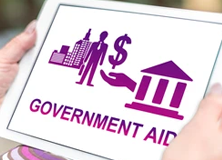Wisconsin
Cash Assistance Options in Wisconsin for Families and Individuals in Need
In Wisconsin, there are various cash assistance programs available. These financial aid programs aim to support individuals and families in times of economic hardship. They are designed to provide temporary assistance to those who are struggling to meet their basic needs.
Wisconsin Works (W-2)
Wisconsin Works, also known as W-2, is a program that provides employment preparation services, supportive services, and cash assistance to eligible families. To qualify, applicants must be parents or caregivers of minor children, and meet several other criteria which can be found on the Wisconsin Department Wisconsin Works page.
Wisconsin Works, also known as W-2, is a comprehensive welfare reform program aimed to provide temporary assistance to Wisconsin residents facing financial hardship. The program offers a range of services including job skills training, education, and employment placement.
Who Qualifies for Wisconsin Works (W-2)?
The eligibility criteria for the W-2 program are quite specific. To qualify, you must:
1. Be a U.S. citizen or legal immigrant.
2. Be a resident of the state of Wisconsin.
3. Have a child under the age of 18 living in your household.
4. Be pregnant and in your third trimester, if there are no other children in the household.
5. Have low or no income.
6. Be willing and able to participate in work and training activities.
Single individuals without children are ineligible for this program. Furthermore, your resources (such as cash, bank accounts, etc.) should not exceed $2500.
How to Apply for Wisconsin Works (W-2)?
1. Contact your local W-2 Agency: To apply for W-2, you need to contact your local W-2 Agency. The chosen agency will guide you on the requirements and the application process.
2. Complete an Application: You will need to complete an application form. In the form, you will be asked to provide details about your income, household members, and employment history.
3. Attend an initial appointment: After your application is reviewed, you will be asked to attend an initial appointment with a W-2 caseworker. During this appointment, the caseworker will discuss your individualized employment plan, which will outline the steps you need to take to move towards employability and financial independence.
4. Additional screening: Depending upon the information you provide, you may go through additional screening for suitability, such as determining your ability to work, any barriers to employment etc.
5. Placement: If you are found to be eligible, you will be placed in a W-2 employment position where you can start gaining work skills while also receiving financial aid.
Remember that W-2 is not an entitlement program. Individuals must engage in work and training programs and comply with program rules to receive financial assistance. Participation is voluntary, and one may choose to not participate at any time, but choosing to not participate will mean not receiving any financial aid.
If you are in dire need of financial assistance and you fit within the prescribed eligibility, then Wisconsin Works might be a beneficial program for you. Be sure to reach out to your local W-2 Agency for further information.
Temporary Assistance for Needy Families (TANF)
Temporary Assistance for Needy Families, or TANF, is a federal program that provides financial assistance to families in need. The amount of assistance is determined by the family's income and size. In Wisconsin, TANF is distributed through local county departments of family services.
Wisconsin Temporary Assistance for Needy Families (TANF) is a federal assistance program that provides temporary financial and other forms of assistance to families with children in times of need.
1. Who Qualifies:
Eligibility for TANF in Wisconsin is based on a family’s income, resources, and the number of individuals in the family. The following groups may qualify:
- Low-income families with dependent children under the age of 19.
- Pregnant women in their third trimester who meet income and resource requirements.
- Families wherein adults are willing to participate in work and other program requirements.
- U.S. citizens or eligible non-citizens living within the state.
- The family's income must be below certain limits set by the state of Wisconsin.
2. How to Apply:
- Online: Start your application online by going to www.access.wi.gov and clicking ‘Apply for Benefits.’ You will be required to create an account and fill out the application form with accurate information about your household, income, and expenses.
- In-Person: You can also apply in person at your local county or tribal agency. You will need to fill out an application form and have an interview.
- By Mail or Fax: Apply by mail or fax by downloading the application form from the Wisconsin Department of Health Services website, fill it in properly, and send it via mail or fax to your local county or tribal agency.
During the application process, you may need to provide documentation to verify your income and other information you have reported.
After you apply, you'll have an eligibility interview where you'll review your application information and discuss program requirements.
Remember, the Wisconsin TANF Program intends to help needy families to support their children’s development and advancement towards self-sufficiency. It's not an entitlement program; rather it's based on the availability of funds.
The approval process may take a few weeks, so it’s important to apply as soon as you realize you need help.
This guide serves as a brief overview of the program. For more specific questions or detailed information, visit the Wisconsin Department of Children and Families website or reach out to local Department of Health Services.
General Assistance (GA)
General Assistance is a program available in some Wisconsin counties that provides cash aid to individuals and families who do not qualify for other forms of assistance. It is often used to help those who are waiting for eligibility determination for other programs.
Emergency Assistance (EA)
Emergency Assistance program in Wisconsin aims to provide immediate assistance to families in severe financial crisis because of situations such as eviction, homelessness, fire, flood, or energy emergencies. Eligibility criteria vary and can be reviewed on the Wisconsin Department of Children and Families page.
Supplemental Security Income (SSI)
Supplemental Security Income is a federal program that provides cash assistance to individuals who are elderly, blind, or disabled and have limited income and resources. In Wisconsin, this program is administered by the Social Security Administration.

 2022-07-07
2022-07-07
 2022-10-04
2022-10-04